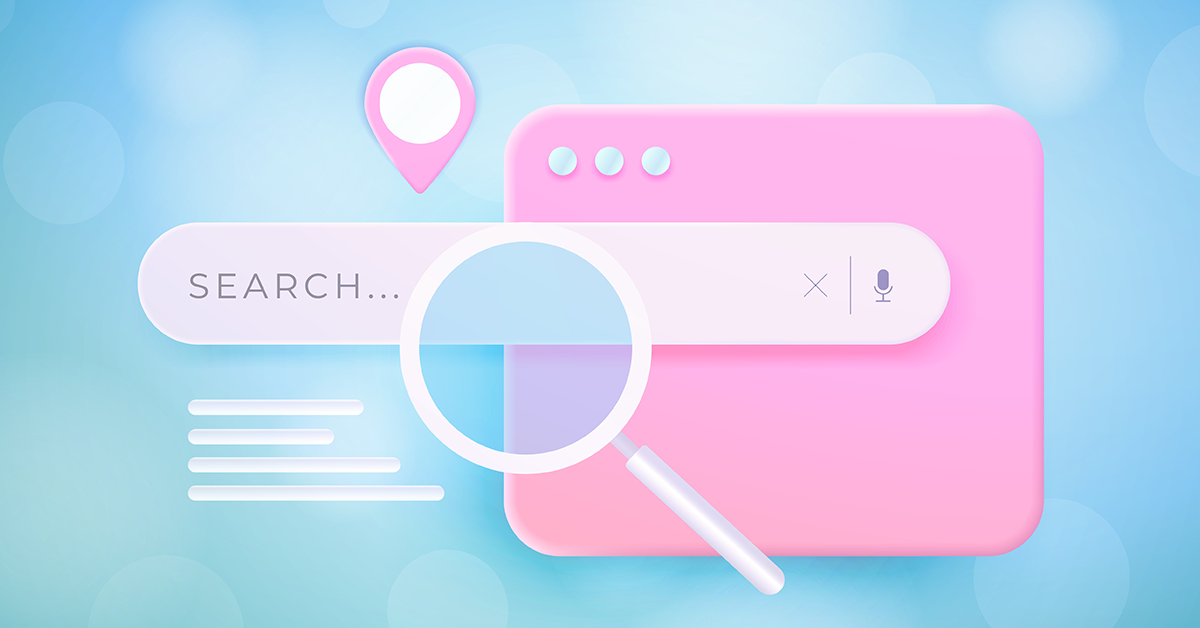Paid search ad campaigns are extremely effective and can offer a wide range of benefits to any business provided you use them strategically, which means you must be aware of the pros and cons. Knowing the drawbacks will help you understand what Search Engine Marketing (SEM) can and cannot do, which is critical for making the right business decisions.
What is paid search advertising?
Paid search advertising, also referred to as Search Engine Marketing (SEM) or Pay-per-click (PPC), is a form of digital marketing where search engines, such as Google, let advertisers place adverts directly on their search engine results page (SERP).
The SERP presents both organic and paid results, although paid ads are usually displayed higher on the page. With paid search, you are paying to get your website listed on the search engines sponsored results section which takes up the first three slots and the bottom three slots on the SERPs.
Paid search works on a Pay-Per-Click (PPC) model, making it a measurable and controllable marketing channel in comparison to more traditional forms of advertising. PPC enables advertisers to bid on keywords to place ads on search engine platforms.
You should consider using paid search if these are your business goals:
- You want to see immediate results.
- You want to earn more website traffic and clicks.
- You want to increase your online visibility and competitiveness on search engines.
What are the advantages of paid search advertising?
Understanding the capabilities and limitations of paid search advertising will help you create a search ad plan that meets your business’s objectives.
The greatest benefit of paid search is to guarantee your website listing appears at the top of the SERP. This helps to drive relevant traffic to your website, giving you an advantage over your competitors.
Additionally, research indicates that many searchers are unable to tell the difference between paid and organic search results, suggesting that there is no difference in a searcher’s willingness to trust organic search results over paid results.
Here are some of the many benefits associated with paid search advertising:
- Variety of detailed targeting options
Search engine platforms offer a wide range of targeting options that enable you to target a very specific audience and let you plan how and when you want people to see your ads.
- Increase brand awareness and website traffic
Paid search ads give you more website traffic. If you have an online business, paid advertisements are an extremely powerful way to gain customers and generate qualified leads. Furthermore, showing your ads at the right time and at the right place can be extremely beneficial.
- Generates qualified leads and interested prospects
The purpose of a PPC campaign is to attract qualified users to your website and get them to take an action (e.g., make a purchase, fill out a form, get in contact). PPC does not just generate leads and revenue, it also informs businesses, where to strategically place adverts to reach the relevant people who are most likely to convert.
- Time efficient
Paid search ads are extremely time efficient; they can be set up in under an hour and your listing will immediately be displayed in the sponsored results.
- Geotargeting
Search engine platforms offer geotargeting, providing advertisers with local and global reach on their advertisements allowing them to reach users living in a specific and relevant area(s).
- Delivers instant and measurable results
Typically paid search advertising generates very quick results which explains why it is often used by marketers. Unlike organic search, paid search can drive a high number of visitors to your site in a very short amount of time provided your ads are optimised to reach your target audience.
- Produces an impressive Return on Investment (ROI)
Google Economic Impact estimates that for every $1 a business spends on Google Ads, they receive $8 in profit through Google Search and Ads (which works out to about £6.55 profit for every £0.820 spent).
- Detailed data analytics
Paid search offers conversion tracking and detailed data analytics. You can monitor ad performance in real-time and gather information about the users engaging with them. This can be a useful tool for building up a more comprehensive picture of your target customers as part of a long-term marketing effort.
- Budget-friendly
You can tailor your paid search campaigns based on how much you’re willing to spend overall. You can set yourself a maximum budget to make sure you don’t overspend on the keywords you choose to bid on, and only pay when someone clicks on your advert or search link.
What are the disadvantages of paid search advertising?
- Can be extremely competitive
Due to the nature of search engines, users are exposed to a lot of options for the same product, so you can be easily compared to your competition. Additionally, for some industries, paid search can be extremely competitive because certain keywords are like gold dust in terms of their potential to drive engagement and therefore have high cost-per-click.
- Lack of visually engaging ad formats
Today’s consumers find visual content highly engaging, however, most search ads are text-based. You can use product listing ads and display ads, which can include images, but those are the only available ad formats for paid search advertising. Due to being text-based, search ads don’t have a viral quality to them (unlike social media advertising which thrives on content sharing).
- Consumers are becoming more reluctant to click on paid ads
People are more likely to trust organic results than paid ads. Most users are aware that paid ads are ranked high on the SERP because a company is paying for them to be there and will purposely skip the paid results until they find the first organic results.
- Budget determines visibility
With paid advertisements, once your money runs out your link will no longer be displayed at the top of the search results.
- Risk of wasting budget
Marketing budgets can easily be wasted when audience settings, keyword selection, and goal tracking are done incorrectly.
Summary
There are many benefits to using PPC, you can generate quality leads, find out more about your audience and increase your online visibility to make your brand stand out. However, paid advertising does have its limitations and risks. There are limited search ad types to choose from and if you don’t set your targeting options and ad settings correctly you can easily risk wasting your precious marketing budget.
At LOCALiQ we specialise in PPC management services, offering you dedicated support across paid search. Get in touch with one of our experts to find out how your business can benefit from paid search advertising.
Further resources:
- 8 steps to launch and manage your paid search marketing campaign
- The complete guide to Google Ads
- How to set up location targeting in Google Ads
- What is campaign optimisation?






